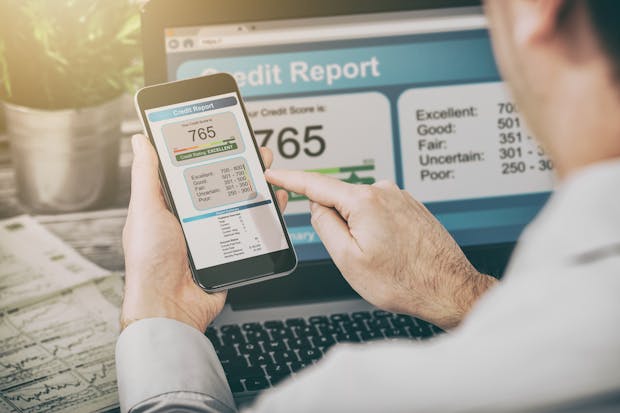does checking my credit score lower it?

every time your credit score is checked, the same is reported in your credit information report. the inquiries about your credit score are classified into two types - soft inquiry and hard inquiry. the credit inquiry classification depends on who is checking your credit score and why. usually, soft inquiries do not lower your credit score, but hard inquiries can.
to know whether checking the CIBIL score will lower your credit score or not, you first need to find out what type of inquiry is it and why it has been conducted. let's first understand each type of credit inquiry:
what is a soft inquiry?
a soft credit check, commonly called a soft inquiry, can occur for a few reasons, including:
- when you check your own credit score/CIBIL score
- when an employer or landlord checks your credit score with your permission
- when a lender checks your credit score to sanction you a loan offer
does soft inquiry lower your credit score?
no, soft inquiries do not have a negative impact on your credit score because you are not officially applying for credit. therefore, you can check your credit score before filling out a form to get a mortgage loan, student loan, personal loan or credit card, etc.
what is a hard inquiry?
when you apply for credit such as loans and credit cards, and the lender or credit card company checks your credit score and report, it can temporarily lower your CIBIL score.
does hard inquiry lower your credit score?
yes, the hard inquiry by a lender can lower your CIBIL score temporarily. when you apply for a loan, the lender will make a hard inquiry, which will show in your credit report. this may temporarily lower your credit score.
other factors that can lower your credit score
apart from hard inquiry, there are various other factors that can lower your CIBIL score. here are some of the most common factors for your reference:
payment history: your payment history is one of the most influential factors that affect your CIBIL score. to keep your credit report in good shape, make you pay your loan EMIs or other debts on time. making your credit card bill payment on time is also a very crucial factor that affects your credit score.
credit utilization ratio: your credit utilization ratio matters a lot when it comes to credit score. a utilization rate of 30% and above will start to lower your scores, hence, you should try to keep your credit utilization rate below 30%. a credit utilization rate in a single digit is considered very favorable.
tenure of credit history: individuals with longer credit history have higher credit scores. but if you open a new account too often, it may lower the average age of your credit history. for example, even if you have been using credit for, say, 10 years, but have taken new credits too often, it will lower the average age of your accounts.
having a credit mix: having a mix of credit types such as — credit cards, personal loans, car loans, home loans, student loans, and mortgage, etc. is considered good for your credit score. it does not mean that having one or two types of credit will lower your credit score, but it could limit your credit potential.
how often can you check your credit score?
if you are checking your credit score yourself, it's considered a soft inquiry, and would not hurt your CIBIL score. therefore, you can check your CIBIL score as many times and as frequently as you want. in fact, it's a good idea to check your credit score regularly. you should always check your CIBIL score before applying for a credit card or loans such as a home loan, car loan, education loan, personal loan, or any other type of credit.
checking credit score before applying for a credit card or loan helps you make sure that you get your credit card or loan applications approved easily and quickly. it would be better if you check your credit score a few months before applying for credit. this way, you would have enough time to review anything that could be hurting your credit score and take the necessary steps to improve your CIBIL score.
even if you don't have any credit requirements, you should check your CIBIL score and credit report at least once a year to maintain good overall credit health. when you check your credit report, if you find any errors in the report, contact the rating agency and provide the necessary details to rectify the error. you can get a free credit report from each of the four credit bureaus operating in India including - Experian, Equifax, TransUnion CIBIL, and CRIF High Mark. you can also get a free copy of your credit score and credit report online through CRED. click on the link provided below to check your CIBIL score for free



